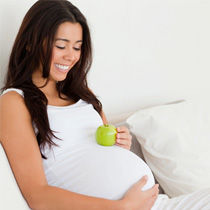Breastfeeding is the best for babies and a healthy diet / maternal nutrition is important when breastfeeding. A decision not to breastfeed can be difficult to reverse. Infant formula is suitable from birth when babies are not breastfed. It is recommended that all formula milks be used on the advice of a doctor, midwife, health visitor, public health nurse, dietitian, pharmacist, or other professional responsible for maternal and child care and the financial implications should be considered. All preparation and feeding instructions should be followed carefully as inappropriate preparation could lead to health hazards.
Foods And Drinks To Avoid During Pregnancy
Healthy eating during pregnancy is as much about which foods to avoid as which foods to eat. Some food may harm your baby as well as make you ill, so food safety needs to be a priority. Now that you’re pregnant, you should really leave the following foods out of your diet:
Undercooked or raw eggs or foods likely to be made with them, (including home-made mousses, ice cream and mayonnaise, all of which may be made with raw eggs). Eggs should be cooked until hard.
- Undercooked or very rare meat and fish – there should be no pink bits left (even if that’s the way you usually like it!).
- Raw fish or meat in dishes like sushi or steak tartare, and smoked salmon or oysters
- Unpasteurised milk, cheese or yoghurt
- Soft cheeses like Brie, Camembert, Ricotta, or blue veined cheeses (ordinary cheddar cheese or cottage cheese is fine, as long as they are pasteurised – check the label!)
- .Pâté or liver – these can have excessive amounts of vitamin A which can harm your baby.
- Some prepared foods such as potato salad or coleslaw can sometimes contain high levels of listeria.
- Check that any ready meals or reheated foods are piping hot all the way through before you eat them.
- Take care at barbecues where meat is often allowed to rest for a period of time before serving.
- Swordfish, marlin and shark. These fish can contain potentially unsafe levels of naturally occurring mercury which can harm your baby’s developing nervous system. Tuna also contains mercury, so limit the amount you eat to up to four medium-size cans (140g drained weight, per can) OR two fresh steaks (up to 170g raw weight, per steak) a week.
- Peanuts – It is recommended that women should avoid eating peanuts during pregnancy and breastfeeding, especially if there is a family history of allergies such as asthma, eczema or hay fever.
- Alcohol – excessive alcohol intake has been associated with many foetal problems, and even moderate alcohol consumption may effect the development of your baby’s brain.
Disclaimer: All content on this Website is provided solely for informational purposes and is not intended as a substitute for medical and/or other professional advice for your specific condition. Please do not disregard medical and/or other professional advice or delay seeking it because of something you have read on this Website. Always seek medical advice before starting any new treatments.

Read More

Ask Our Careline
Whatever’s on your mind, we’re here to help



